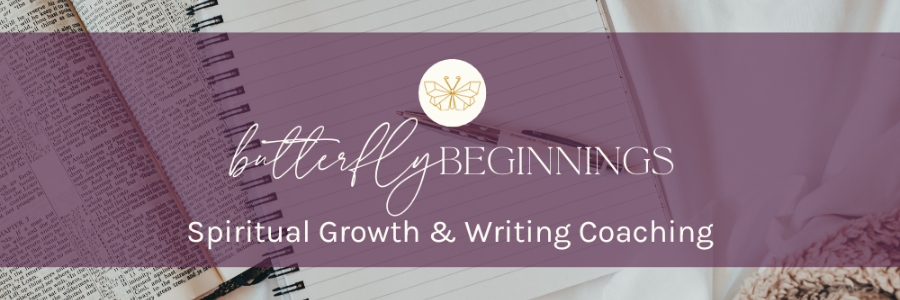3 things to consider when writing your first draft
While writing my first draft of my first book, I came up against several things that I wish I would have done differently. Things that had I known in the first place, it would have saved me time, energy and my sanity! As a writing coach, I share these nuggets with my clients early on so they can avoid making the same mistakes. The following are my tips for making writing your first draft seem a little less daunting and more enjoyable, and hopefully will save you the headache WHEN you experience writer’s block.
Lesson #1: write, don't edit.
When starting a new project, it's essential to accept that your first draft is going to be imperfect and messy. It's natural to want to edit as you write, but that can stifle your creative flow. Instead, focus on getting your ideas down on paper without worrying about grammar, punctuation, or spelling errors. Sometimes, it’s not even about the mechanics tripping us up, but more so that we judge our words. Don’t get caught up in asking yourself, “Where does this go?”, “Should I write this down?” “Does this sounds good?”, “Could I write this better?” as you first write your draft.
Remember, you can (and will!) always go back and edit later. This approach can help you get past the blank page and into the writing zone. This is best looked viewed as free writing or a brain dump. You need to get the words on the page. Period. Even if they don’t make sense, just get them down. Even if you think you are jumping from idea to idea and there is no organization, get them down. Even if you are random and repeating yourself, get them down. One you get them down, then you can organize them.
GET THEM DOWN. WRITE FIRST, EDIT LATER. ALWAYS.
I know what you’re thinking, how can you just write if you don’t have a plan or direction. Well read my next tip to see how it’s possible to write with a plan in mind AND allow yourself to not edit your work.
Lesson #2: reframe writer's block as a call to reconnect with God.
Writing is a spiritual experience, and sometimes when we face writer's block, it's a sign that we need to reconnect with our faith. If you're struggling to find inspiration, take a break from your work-in-progress and spend some time in prayer or bible study. It can help clear your mind and refocus your creative energy. And, if you feel like you're forcing the writing, it's okay to step away and do something else creative. Often, when we're on the brink of something great, we get the urge to delete it all. Don't give in to that urge; instead, take a break and come back to it with fresh eyes. Reframe your writer’s block as writer’s BREAK. Welcome the invitation to step away and do something else for awhile to recharge your batteries before you revisit your draft.
We tend to think of writers block as something that we are doing, or not doing, this idea that it is something that we must work through, when it is more likely that it may something God wants up to sit IN. We tell ourselves, “if could just knock down this down and get to the other side.” But God might not want us to try to kick the door and barge in, He may in fact be calling us to sit in the uncertainty, to open the window and listen for His direction.
If this is where you are in your creative journey right now my friend, take heart. You are not alone. I too am in this period of “writer’s break.” I’m working on a book idea with some great concepts that I wanted to illustrate with a metaphor, but now I feel stuck on which metaphor to use and where to go from here. So instead of trying to push myself to clarity, I’m challenging myself to sit in uncertainty. It’s frustrating at times, but necessary for creative growth and for God to fully grow my creative ideas.
REFRAME WRITER’S BLOCK AS WRITER’S BREAK.
Lesson #3: do not become too attached to your original outline or idea.
(Don’t follow you’re outline too closely.) When we start a new project, we often have a clear vision of what we want to write about. However, as we start to write, we may find that the story takes on a life of its own. If your original idea isn't sticking to the outline, don't panic. It's a good thing! This means that your creative potential is taking over, and you're on the right track. Instead of trying to stick closely to your outline, embrace the changes and let your story evolve naturally. Remember, when writing your first draft, it's best to free write.
Think of the entire process as you would if you were cleaning out your closet. You must take everything out first (get everyone out on paper) before you can pick it up and decide if you are using it and where it would go, or that it’s no longer serving you. If we hold on too tightly to what we think our story should be or the direction it should go, we might miss out of what the Holy Spirit wants to do in us and through us as we share our words with the world. If you’re anything like me it’s hard to let go of that original idea because not only, did you really like it, but you spent a lot of time on it as well. Trust that God has something even greater in store for you.
While I don’t encourage a strict outline, I do think some general guides as important as you begin to write your write your first draft. Jot down some of the main ideas, themes, takeaways that you desire your book to have. From those key points or messages start your free writing process. Think of this more as a “book sketch” (as it captures the essence of your idea)
Bonus tip: Don’t forget to be creative!
Sometimes it helps to draw out our illustrations and examples. Even if you are not “artistic”, you can still benefit from drawing out an illustration and visual picture that is coming to mind as you review your draft. This works for fiction also! As we start to draw these pictures or scenes out, then other details come to mind and help shape our understanding of our own words a bit better. (i.e. I knew I was drawn to that illustration, but wasn’t exactly sure why, until now!)
Writer's block is a natural part of the creative process, and it's nothing to be ashamed of. Remembering to write everything out first, reframe writers’ block as writers’ break, and not to become too attached to your original idea, and create a book sketch instead of book outline, can really help you as you begin your first draft.
I’m here if you want to book a quick discovery call to discuss these concepts further. I would be delighted to walk you through this process in more detail!
Cheering you on in your writing journey!


